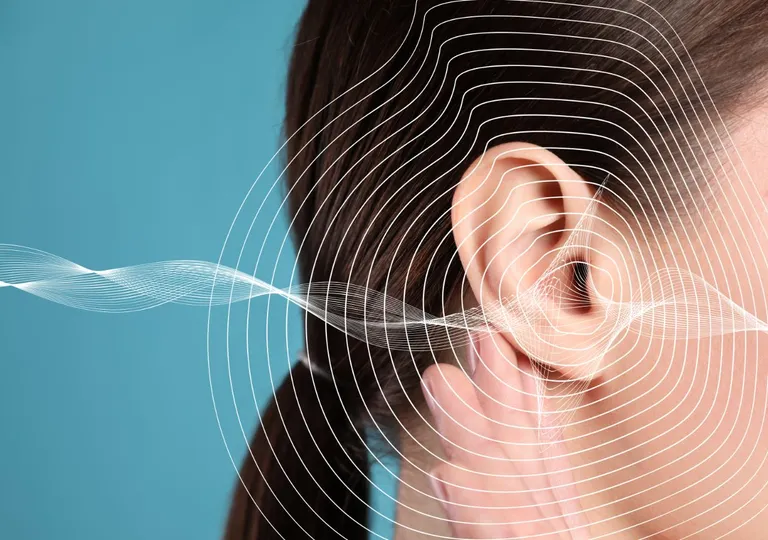Introduction:
In the hustle and bustle of our modern lives, we often find ourselves surrounded by various sounds, some soothing and others, unfortunately, not so pleasant. From the relentless traffic noise to blaring music at concerts, our ears are constantly exposed to a barrage of sounds. While we may not always realize it, this auditory assault can have a profound impact on our ear health. In this blog post, we will delve into the world of decibels and explore how loud noise can silently affect our ears.
Understanding Decibels:
Decibels (dB) are the unit of measurement for sound intensity. The scale is logarithmic, meaning that each increase of 10 dB represents a tenfold increase in sound intensity. A normal conversation typically registers at around 60 dB, while a rock concert or a busy construction site can easily reach 100 dB or more. Sounds beyond 85 dB can be harmful, especially with prolonged exposure.
The Mechanism of Hearing:
Before we explore the effects of loud noise, it’s crucial to understand how our ears work. The ear is a complex organ with three main parts: the outer ear, the middle ear, and the inner ear. Sound waves enter the outer ear and travel through the ear canal, causing the eardrum to vibrate. These vibrations are then transmitted to the three tiny bones in the middle ear, known as the ossicles. Finally, the vibrations reach the cochlea in the inner ear, where hair cells convert them into electrical signals that are sent to the brain.
The Impact of Loud Noise on the Ear:
Temporary Hearing Loss:
Prolonged exposure to loud noises can lead to temporary hearing loss. This is often noticed after attending a loud concert or spending a day in a noisy environment. The hair cells in the inner ear become overworked and need time to recover. While the hearing loss is temporary in such cases, repeated exposure can lead to permanent damage.
Permanent Hearing Damage:
Sounds above 85 dB can cause permanent damage to the hair cells in the inner ear. Over time, this damage accumulates, leading to irreversible hearing loss. People working in noisy environments, such as construction sites or factories, are particularly vulnerable to this type of hearing damage.
Tinnitus:
Exposure to loud noise can also result in tinnitus, a condition characterized by a constant ringing, buzzing, or hissing sound in the ears. This persistent noise can significantly impact a person’s quality of life, causing stress, anxiety, and difficulty concentrating.
Hyperacusis:
Hyperacusis is a heightened sensitivity to certain frequencies and volumes of sound. It can develop as a result of overexposure to loud noises and can make every day sounds seem intolerably loud.
Aging Acceleration:
Exposure to loud noise can accelerate the natural aging process of the auditory system. This means that individuals who are regularly exposed to high levels of noise may experience age-related hearing loss earlier than those who protect their ears from excessive noise.
Protecting Your Ear Health:
Use Ear Protection:
In environments where loud noises are unavoidable, such as construction sites or music concerts, it’s essential to use ear protection. Earplugs or earmuffs can significantly reduce the intensity of the sound reaching your ears.
Take Listening Breaks:
If you work in a noisy environment, try to take breaks in quieter areas to give your ears a rest. This can help prevent cumulative damage from prolonged exposure.
Limit Volume Levels:
When using headphones or earphones, be mindful of the volume levels. Listening to music or podcasts at high volumes through headphones can contribute to hearing damage over time.
Maintain Safe Distance:
Whenever possible, maintain a safe distance from loud sources of noise. This can be particularly important in settings like concerts, where proximity to speakers can significantly increase the intensity of the sound.
Regular Hearing Check-ups:
Schedule regular hearing check-ups, especially if you are frequently exposed to loud noises. Early detection of hearing issues can help in managing and preventing further damage.
Conclusion:
Our ears are intricate and delicate organs, and their health should not be taken for granted. The impact of loud noise on our hearing is often underestimated, and the consequences can be irreversible. By understanding the risks and taking proactive measures to protect our ears, we can ensure that the soundtrack of our lives remains clear and vibrant for years to come. Let’s embrace the beauty of sound while also being mindful of the potential harm it can cause, making informed choices to safeguard our precious sense of hearing.



